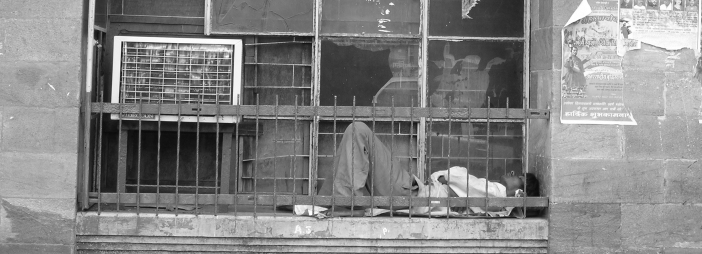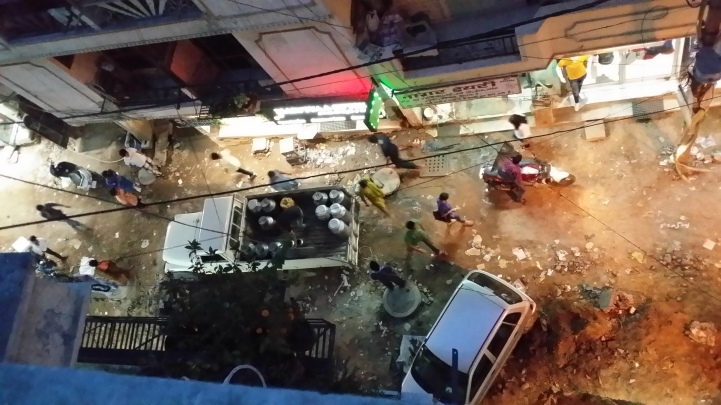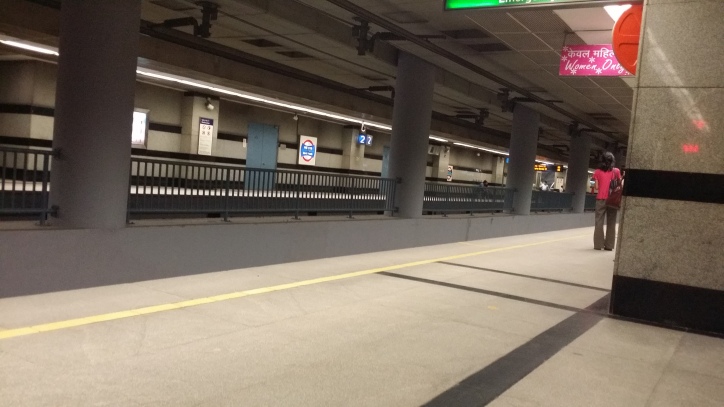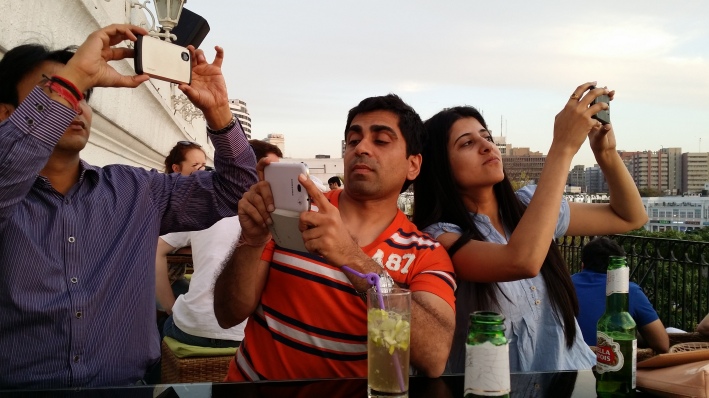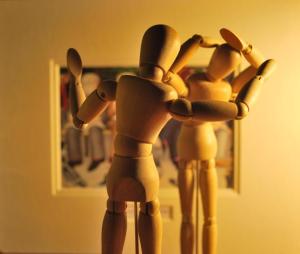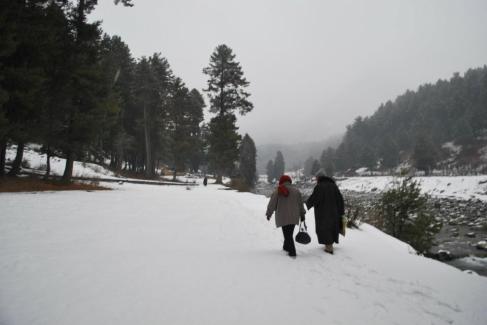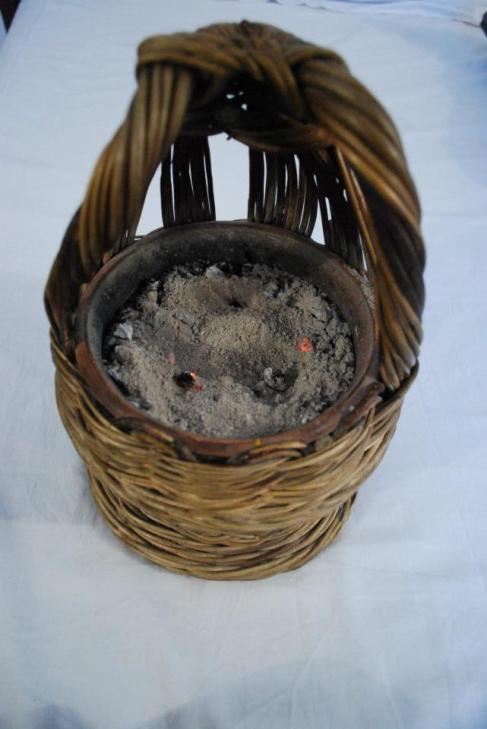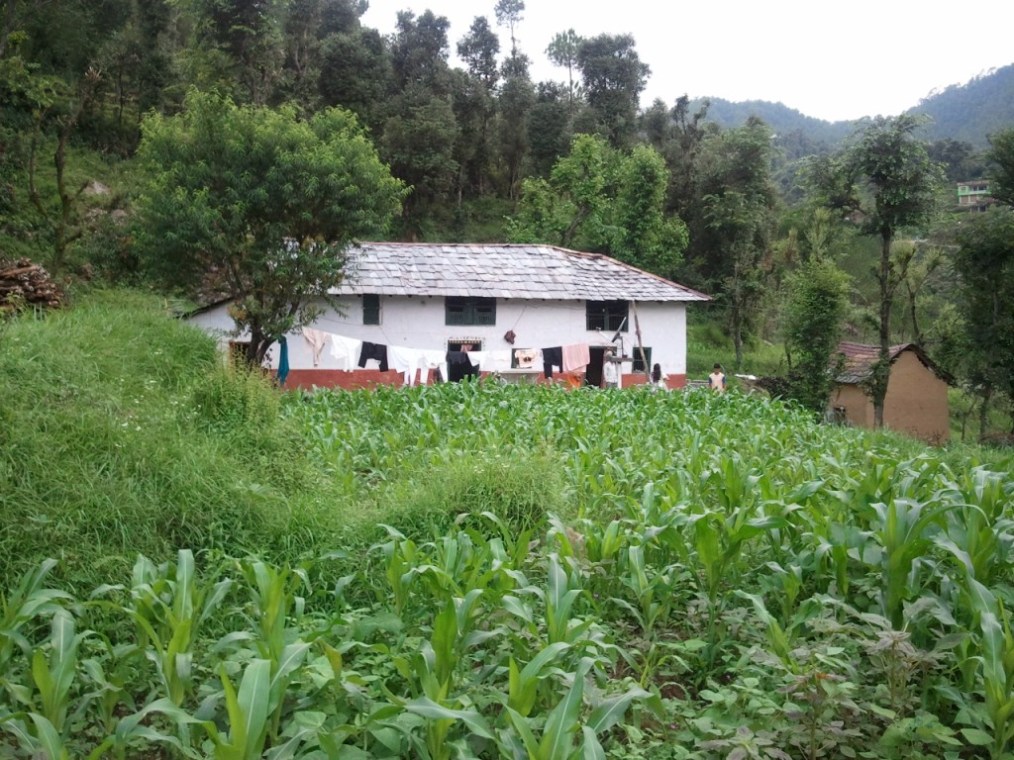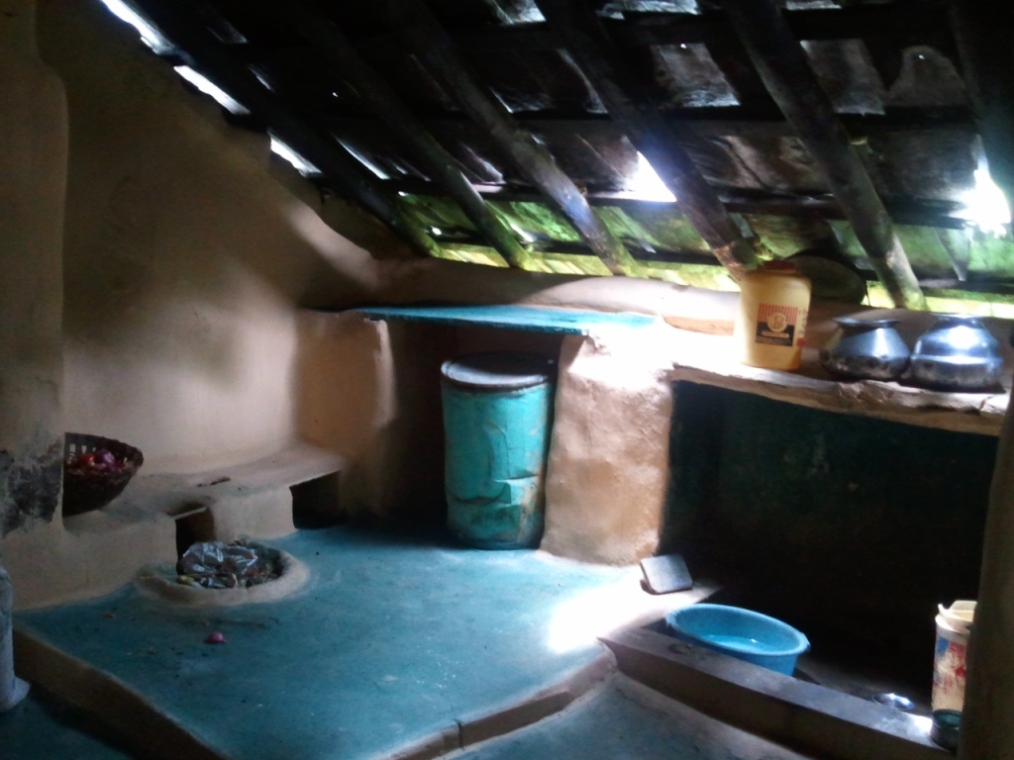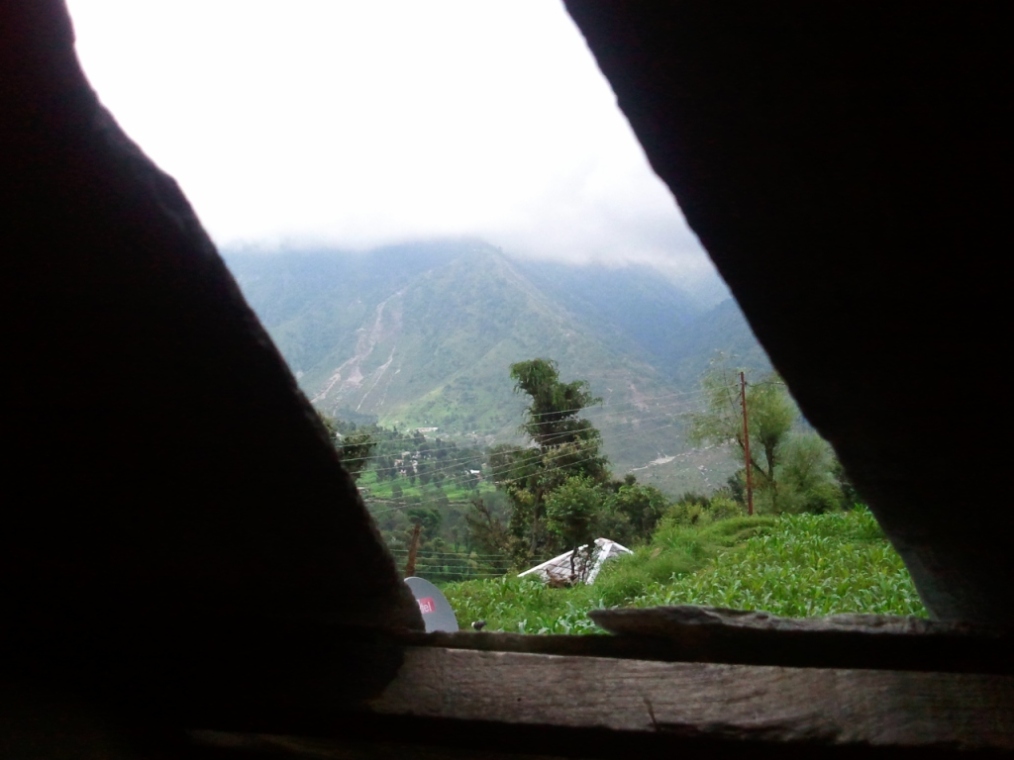Source: Learning, Unlearning and Re-learning the Indian Standard Time
To the rest of the world Indian Standard Time (IST) refers to the time zone of Indian subcontinent, but for Indians it is a concept which allows to take time of appointment not too seriously. At least in their personal lives, Indians are famous for major delays. It is okay to show up more than an hour late and nobody takes offense in that. Unknowingly, I was following IST until I moved to London for my masters.
During my education, we had to travel outside London for case studies. The students would meet at a decided station and leave together. New to London and new to following time precisely, I missed a train by 1 minute. It never occurred to me that this would be a huge life changing event in my life. Not only I lost a huge amount of money to get to the place but also everyone (exaggerated!!) looked at me in surprise! I learned that it is okay to be 15 minutes early for an appointment but not even a minute late. Being exposed to other cultures, I found out that people took time seriously almost at all points and you text even if you are speculating few minutes delay. May be it was a big city culture or that’s how people lived outside my country- I don’t know!
Now I follow precision in time in my life. I back-calculate time if I have to reach somewhere. For instance, I go for yoga at 4.30 every Thursday. The place is only 7 minutes from my house. I calculate like this: the class starts at 4.30, so the last I can reach is 4.25. To reach at 4.25, I have to be out of the house at 4.15 (3 minutes for unexpected delays). To leave at 4.15, I need 20 minutes of preparation, including changing to yoga pants, tying my hair, sipping water, etc., etc. Therefore, I need to be out of my desk at 3.55.
I follow it almost religiously in all my tasks. For me, it makes my life easier and I am never embarrassed due to reaching late (unless I have a really good reason). However, it is not easy to maintain this. Every now and then I meet people (from my own culture) and their lifestyle surprises me. Initially, I got really upset when I (re)leaned that people don’t follow time strictly. Now, I am re-learning the Indian Standard Time (NEED TO). After all, it is my own culture!!
I have relationship with cities. With Delhi it is a love-hate relationship.
You do not share relationship with cities. You are in Delhi for work. You live in your suitcase in a posh area of the city and will go back as soon as you finish.
He is a resident of Delhi. Born somewhere in the US but lived here all his life. He belongs here!
They live across my house in a very small house. I don’t talk to them often. I don’t know if they have relationship with cities. I don’t know whether they like Delhi or not. May be they are here only to earn money!
So why am I in this city at all? May be I was lost and parent’s house was a safe place to come back to. May be I was too insecure to explore opportunities or I already knew I will excel here. I have seen many faces of Delhi- historic and contemporary, galleries and pubs, posh and dodgy, crowded and quite, helpful and disrespectful, insecure and protective, honest and cheat. Such complex is my interaction with this city. To love London was so simple! To (almost) hate living in Nagpur was also simple! But Delhi evokes mixed feelings in me which I could never understand.
I wonder why you don’t have feelings for a city. A city like Delhi!! Are you insensitive or the city does not talk to you? Are you too busy doing your everyday business? Do you take time off to explore the city? Do you interact with the city?
His Delhi is very limited. He has not explored the historic cities or galleries, museums. He has never travelled in a public transport. I don’t think he has even seen the New Delhi Railway Station. But he gives much more to the city than me. Unlike me, he knows their Delhi.
What is Delhi for them? I still don’t know. I am scared to even ask. I don’t know how they survive. I walk with you and him sometimes in the city. I see the help they get from both. I am indifferent. You told me that they don’t have money to buy food. You buy food for them while he offered a job. I am still indifferent.
I have established a relationship with the city but you have established a relationship with its people. I think you have a very limited understanding of the complexities of this city but you give much more to the city. Our perception of the city is so different. My Delhi is different than your Delhi and his Delhi. I am indifferent to their Delhi!
When I got (don’t want to use the word ‘bought’!) them I never thought they could signify love. Those who do not know- I ran (quite literally!) a mile on the south bank in London to get to Tate Morden before it closes. They were my birthday gift to myself (I can be strangely weird sometimes!) The name Lo (male) and Ve (female) wasn’t a thought out one. The first word I saw outside Tate when I got them was LOVE. So I split the word into two and they become Lo VE.
Now when I converse with them- I think more than love they signify relationships. Love is only a little part of relationships which are full of surprises, disappointments, anger, joy, independence and inter-dependence, moments and silence.
Hey! I did not start to give relationship advices! Sorry to have disappointed you- if you were looking for that here! I am just wondering when the four men (in the background) will finish their lunch?!
Delhi Gang Rape is a topic of intense discussion and distress. I participated in discussions at home, read opinions on facebook and blogs, saw events on news, overheard conversations in a coffee shop. After all this, in the capacity of an Indian citizen I’d like to ask why:
- Why there is an exception in the Indian Penal Code 375 which states that sexual intercourse by a man with his wife, the wife not being under fifteen years of age, is not rape? Why is it assumed that a wife will be willing for intercourse regardless of husband’s behaviour? Are women being treated as object of pleasure by the law?
- Why in the Indian Penal Code 375 the word penetration is not explained? Is it assumed that everybody who reads the law would know the related possible actions and means? Or it is written in a way that offenders can be rescued by different possible interpretations?
- Why is it assumed that in this country only women can be raped and only man can rape? Of course, it is predominant but why is the law gender biased?
- Why in the Indian Penal Code 376 (Punishment for rape), death caused by rape is not addressed? Why is the punishment limited to imprisonment only? What if the accused has committed such crime before? Will the punishment be intensified for the offender?
As a woman, I’d like to ask:
- Why do people expect us not to be out at night? Why is it assumed that any such event can happen only at night?
- Why do people instantly assume woman’s possible attire in such events? If there could be any possible relationship, women in other countries should have been raped most. Is it not about the attitude of individual or the society?
- Do we assume that we are safe when accompanied by a male?
- Do we only teach our girls to be modest and submissive? What do we teach our boys? Do we teach them to be humble and respectful towards women? Or we save that only for women of the family (girlfriend excluded obviously) and we don’t care how he behaves outside?
I wrote the title and wondered “detox”! Really? from Facebook? YES!!! Really!!
Everyone knows how much time they “waste” on Facebook. But they don’t want to do anything about it (I guess!). Don’t tell me you don’t Facebook while you work! Everyone does. In fact, if you peep everyone has a Facebook window in the explorer. I did once (actually more than once!) to understand if I was the only one using Facebook in library. Thankfully not! (As if it is a crime and I am thankful that I have partners. And of course, where it is banned – we know how to extinguish the fire(wall), don’t we?
Don’t get me wrong. I am also one of the addicts. It has only been two days that I deactivated my account (and feel wonderful about it!). A friend asked me if I was feeling anti-social because I deactivated my account! Whoa! Being social has altogether taken a new meaning now.
So, what I am really missing in my life? Stalking! That seems little harsh especially considering how nice I am. (Lol)Now Facebook has a new feature called ‘close friends’ and it also suggested me who should be my close friends. Based on my activities on Facebook, it was convenient for them to pick who are my “close friends”. Anyway, I just followed. And now I can read who my sister recently added on Facebook and why my (guy) friend thinks marriage is a punishment and blah blah blah blah. So how useful is the information for me? Realistically speaking, not valuable at all!
So, everyone agrees Facebook is sheer waste of time now!? Don’t get started on ‘I got to meet my childhood friend on Facebook’. I did too! And then what happened? They never met me in person even though we live in the same city! Facebook has advantages but now I am convinced that it is less than disadvantages.
You agree with me? (Please do! :-D) Yet cannot quit? Alyaa thought she will ask her best friend to change the password and not to give it back to her. You can try that too! Hope you get to “detox” too.
Piyush just returned from a trip to a national park in US- barely alive. I really haven’t heard much of his experiences from the trip (all alone! for 7 days!!) in the wild. After a brief conversation, I started wondering how as travelers- we do not (rather cannot!) adopt the local traditions.
I travelled to kashmir in winter 2011. It was incredibly cold (lowest was -7 degrees). In that extreme weather (and no central heating in the buildings) all I thought was- how to keep myself warm. The locals were at ease; they have developed ways of dealing with the cold- kangdri.
Kangdri is a small earthen pot filled with coal and kept inside a basket. Kashmiris attach this pot to their bodies (!) to keep their body warm. Such a localized solution! They even sleep keeping this pot in their bed. When my parents tried doing this, coal spilled on the bed. Probably I don’t need to elaborate on what happened next.
This small earthen pot is not only way to deal with the climate. Kahwa is a tea which kashmiri people make after hours of boiling leaves and adding saffron. The locals must have developed numerous ways over the years. These two were only things I was exposed to during my short visit.
Hello!
I am in process of writing my dissertation on sustainable heritage tourism.
I need to know prefered means of information for tourists.
Kindly participate.
Thanks
Although this house had many striking features, today I will write only about the roof. When you imagine a roof, do you really imagine parts of it to be flexible? I did not. Formally trained as an architect, I had always envisioned roof only as a cover. (Until I visited this house!)
It was a beautiful day in the month of July that I visited this house. That day, all the elements of weather were certainly welcome inside the house. The windows were open and so was the roof. Yes! So was the roof! It is a matter of simple innovation/adaptation. The slate tiles were fixed only at one end to the roof. The other end being free- tiles could be rotated, allowing the weather gods inside. How innovative!
Small innovations like these are abundant in houses of Indian villages. I feel my visits to these houses would be incomplete if I do not talk to the residents about ‘how they constructed their house’. Unfortunately, in this case the residents did not know. It is not surprising; people do not prefer to build in conventional ways now.
